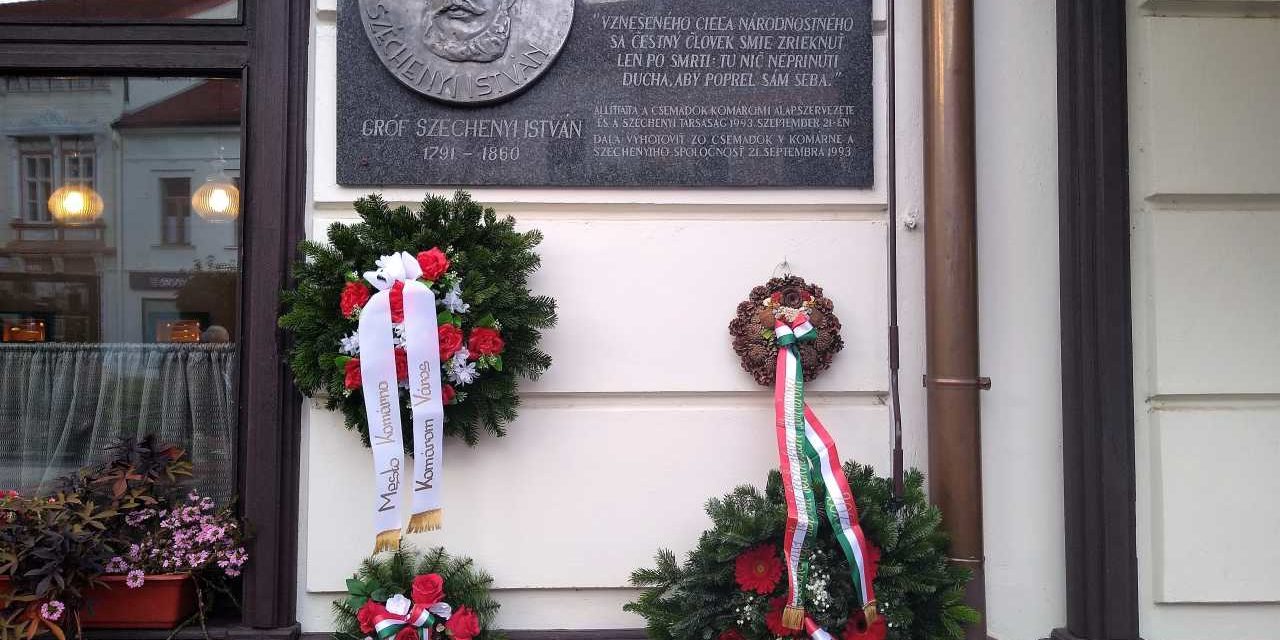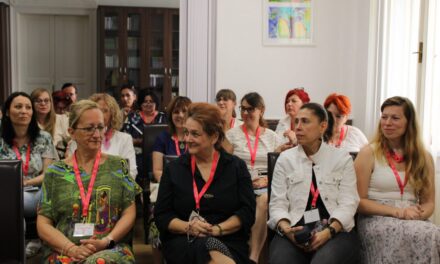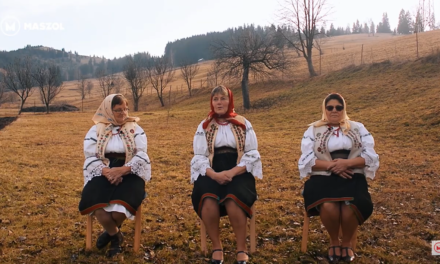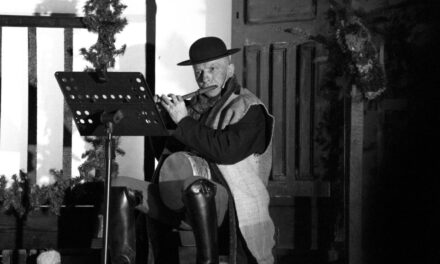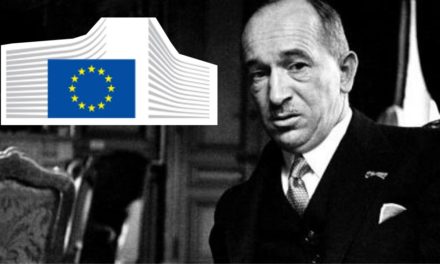The Széchenyi István Civic Association held a commemoration with wreath-laying late this afternoon in Komárom, on the occasion of the 230th anniversary of the birth of the greatest Hungarian.
The traditional wreath-laying ceremony took place at the Széchenyi memorial plaque near Klapka square, where high school teacher Endre Mózes, vice president of the association, gave a speech. Quoting the thoughts of an outstanding personality of the reform era, he said,
"a person is only worth as much as he benefits his fellow men, his country, and thus the whole of humanity".
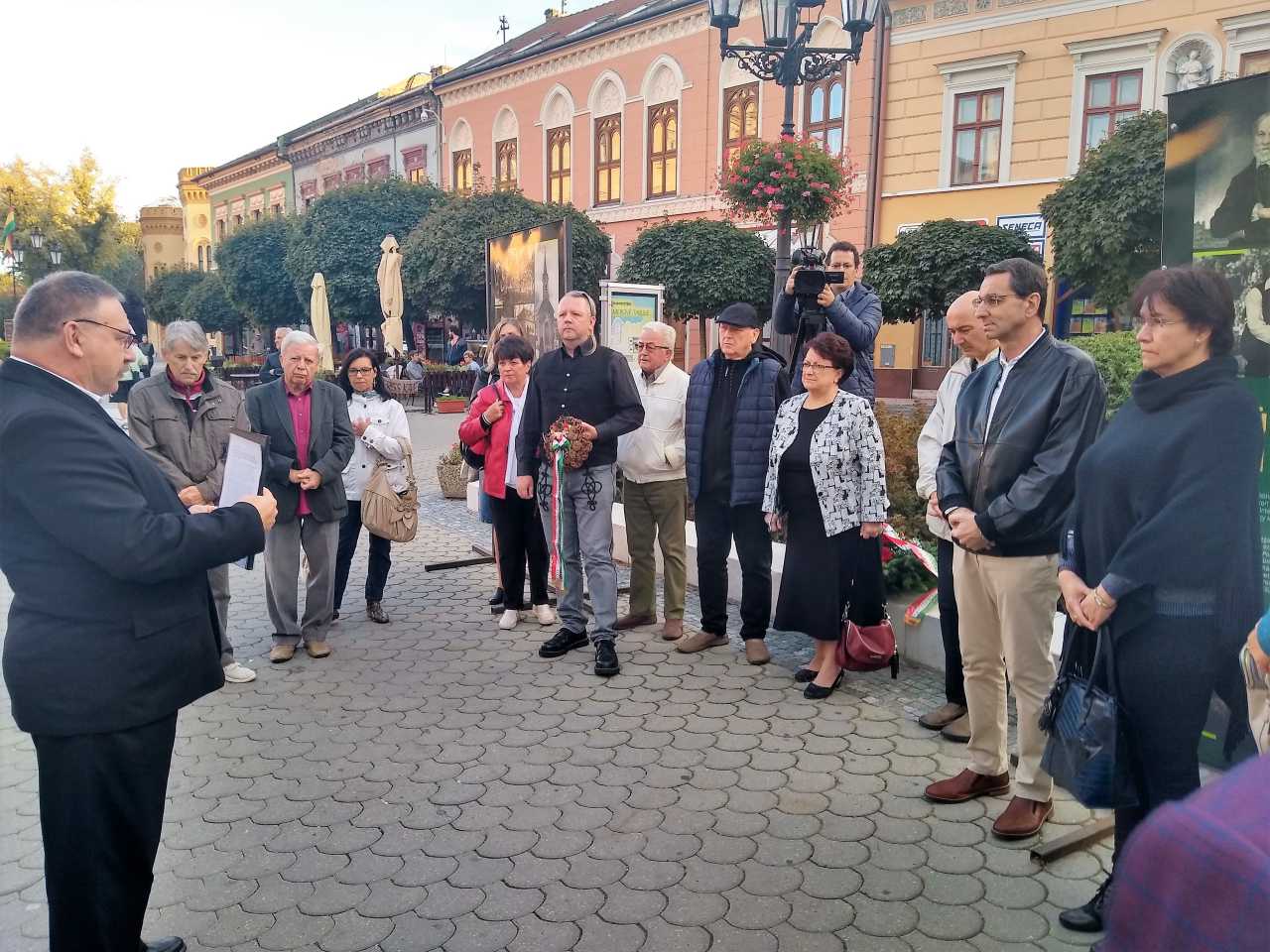
Endre Mózes (Photo: Erika Szalai/Felvidék.ma)
Endre Mózes emphasized his thoughts on this guiding thread, that everyone must recognize their task, vocation, and mission in this world. "If we only look at our own interests, we will surely get lost and fail, if we look further, we can be useful members of our nation," he believed. However, in his opinion, working for others alone is very difficult and the bigger the task, the greater the need for others. Again, he quoted Széchenyi:
"Everything is difficult for one, nothing is impossible for many!"
"We have to renounce the interests and ideas of ourselves or our small group. The solutions that once worked well are a bigger task in order to meet the new challenges," he said, adding that Széchenyi also set an example for this. The Hungarian history teacher recalled that Széchenyi tried to cooperate with his greatest political opponent, Kossuth, even if he considered many of Kossuth's solutions to be wrong and fatal.
"To unite for a good cause with those who want the same thing, only in a different way, but at the same time not to forget our own values and interests," he said, adding that it would be good to learn this from our predecessors.
In his speech, he explained that Széchenyi realized his mission at the end of his twenties, which he stuck to until the end of his life. As he said, he devoted all his strength, talent and connections to the upliftment of the Hungarian nation and his country. "With this, he set an example for all of us, since our task is no less: to save our nation, our part of the nation, to raise our native land, which is respected as a homeland, and to make it livable according to everyone's talent, strength, and potential," he underlined. At the same time, Mozes assessed that the prerequisite for this is to be able to get out of "the grip of our selfishness, self-interest, unbelief and immorality."
After the speech of the vice-president of the association, the representatives of civil organizations and the mayor Béla Keszegh from the local government placed a wreath on the memorial plaque of István Széchenyi, an outstanding figure in Hungarian history.
Source and featured image: velvidek.ma

